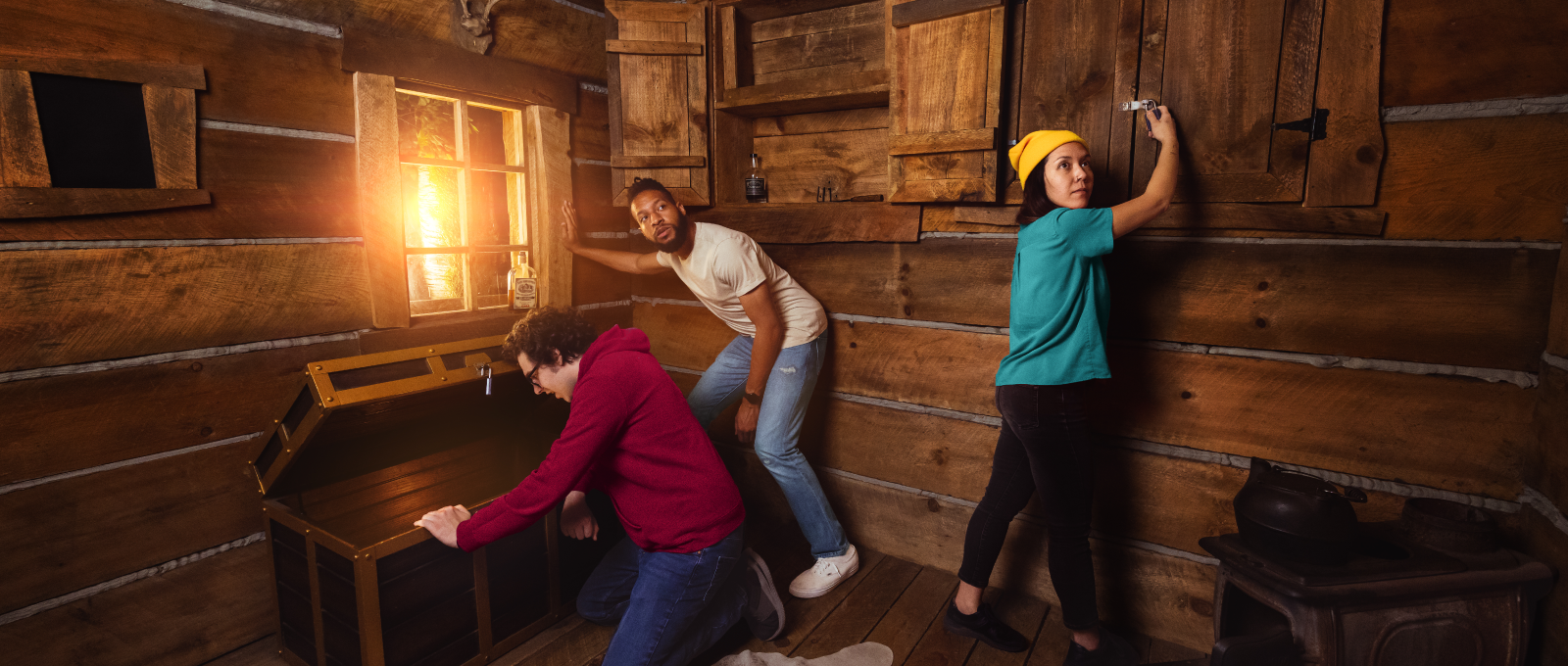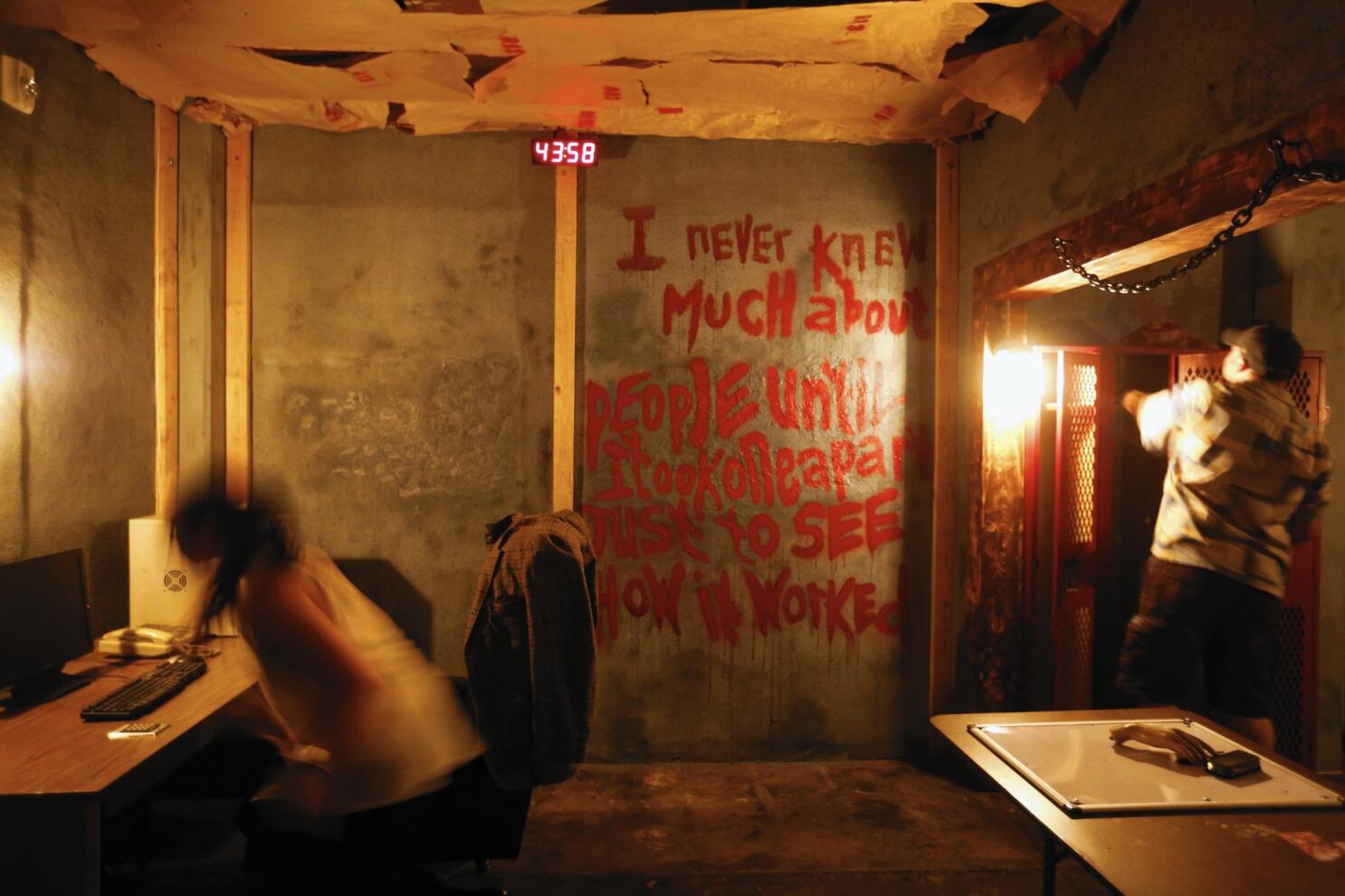Group Methods: Just How to Team up Efficiently in a Retreat Area
Browsing the intricacies of a retreat room demands even more than plain enthusiasm; it needs a well-coordinated approach grounded in clear interaction, critical role tasks, and adept time management. Groups need to proactively listen to each member's insights, assign roles that align with specific strengths, and keep normal check-ins to make certain focus and avoid redundancy. By promoting a setting that values cohesion and flexibility, teams can considerably heighten their effectiveness and success prices. The subtleties of these methods can change the experience, but just how precisely can they be implemented to make best use of the potential for success?
Establish Clear Communication

To facilitate clear communication, it is essential to mark a central point of get in touch with for information dissemination. Brief, concentrated updates from each team member can maintain the team educated without frustrating them with details.

Appoint Functions Tactically
While clear communication establishes the foundation for efficient team effort, assigning duties tactically ensures that each employee's staminas are made use of effectively. In an escape area scenario, the time-sensitive and complex nature of challenges demands an efficient technique to job delegation. By determining and leveraging private competencies, teams can optimize their analytic capacities and improve overall performance.
Someone with a keen eye for detail might stand out in finding hidden things, while a logical thinker can be much better fit to addressing problems. This role usually needs strong organizational and interpersonal skills.
2nd, make certain that duties are adaptable and adaptable. As new challenges arise, the group needs to be able to pivot, reallocating tasks as required. This flexibility aids keep energy and protects against traffic jams that could happen as a result of stiff function tasks.
Eventually, a calculated strategy to function task not just takes full advantage of the toughness of each group participant however likewise promotes a cohesive environment, driving the group towards an effective retreat.
Use Diverse Abilities
Acknowledging and harnessing the varied abilities within your group can substantially raise your performance in a retreat space. Each employee brings unique staminas to the table, and efficiently leveraging these capacities can quicken analytic and improve total effectiveness. For example, a group member with solid analytical skills could stand out at understanding intricate codes or patterns, while another with keen empirical capabilities might quickly find surprise ideas that others may neglect.
Urge group participants to voice their insights and ideas without delay, making certain that all possible remedies are considered. Additionally, appointing jobs that align with each member's staminas can avoid bottlenecks and make sure that development is continual.
Moreover, variety in skills usually equates to variety in believing styles, which is invaluable in a retreat space setup. While some difficulties might call for rational thinking and precision, others may gain from imaginative and association of ideas. By recognizing and leveraging this variety, groups can deal with a broader variety of difficulties much more efficiently, thus increasing their opportunities of an effective getaway.
Manage Time Successfully

Identify visible challenges and split tasks based on group members' strengths, making certain that no one is idle. This practice can assist keep the group concentrated and stop time from slipping away unnoticed.
In addition, stay clear of tunnel vision. If a puzzle is taking also long, revolve team participants or move on to an additional challenge, returning later with fresh perspectives. Interaction is critical-- maintain every person updated on solved challenges and continuing to be tasks to stay clear of repetitive efforts.
Finally, use any hints or ideas moderately but tactically - best escape room. Knowing when to request for help can save useful time. By adhering to these time management concepts, basics groups can substantially enhance their chances of an effective and satisfying escape space experience
Debrief and Reflect
Representation is a crucial facet of group development and improvement in the context of getaway areas. Once the difficulty is completed, whether efficiently or not, it is important for the group to participate in an organized debriefing session. This procedure permits staff member to assess their efficiency, identify strengths, and identify locations for improvement.
Start the debrief by discussing what worked out. Highlight specific circumstances of effective interaction, analytic, and partnership. Recognizing these positive actions reinforces them and encourages their rep in future difficulties.
Following, address the obstacles experienced. Talk about minutes of complication, miscommunication, or ineffective methods. Urge an open and constructive discussion where employee can share their point of views without concern of criticism. This cultivates a society of continuous enhancement and discovering.
Conclusion
In final thought, successful cooperation in an escape area is based upon clear interaction, critical role tasks, the effective utilization of diverse skills, and proficient time administration. Regular check-ins and organized debriefings are necessary for keeping emphasis and promoting constant improvement. By developing a cohesive and flexible team atmosphere, the chance of successfully solving problems basics and achieving the goal of running away the area is dramatically boosted. This strategy not just makes certain success yet likewise advertises collective growth and understanding.